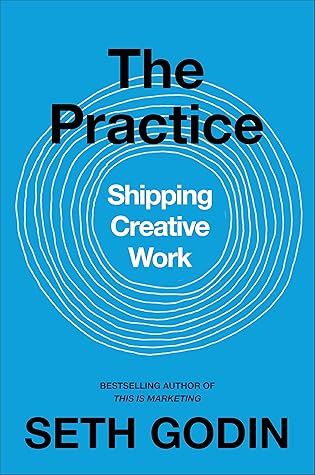More on this book
Community
Kindle Notes & Highlights
Creativity is a choice, it’s not a bolt of lightning from somewhere else.
The practice is not the means to the output, the practice is the output, because the practice is all we can control.
At the heart of the creative’s practice is trust: the difficult journey to trust in your self, the often hidden self, the unique human each of us lives with.
Art is the generous act of making things better by doing something that might not work.
If you want to change your story, change your actions first.
We become what we do.
Once you decide to trust your self, you will have found your passion.
“Do what you love” is for amateurs. “Love what you do” is the mantra for professionals.
We need a boss who trusts us.
What we need is a boss who can trust us enough to look ahead with confidence as we go on this journey.
Decisions are good even if the outcomes aren’t.
The alternative is to trust the process, to do our work with generosity and intent, and to accept every outcome, the good ones as well as the bad.
If you’re results-focused, if the trust you had in your self has become a fragile cycle in need of reassurance, shipping your work to the world is fraught. And so it might be easier to stay warm in the narcissism of always saying yes. Or always saying no. But that surrender means you’ve sacrificed the most generous (and frightening) thing you can do: trusting yourself enough to show up and ship the work. The right work to the right people for the right reason.
Hope is trusting yourself to have a shot to make things better. But we can hope without reassurance. We can hope at the same time that we accept that what we’re working on right now might not work.
Kiasu is the Hokkien word for “the fear of being left behind” or not getting enough.
Confidence is a feeling, and feelings are difficult to measure and control. Reassurance is futile because it seeks to shore up a feeling, and in any given moment, it might or might not do the job.
Having empathy might make you a good person, but it also makes you a better creative.
A key component of practical empathy is a commitment to not be empathic to everyone.
Any idea withheld is an idea taken away.
Leaders make art and artists lead.
The real lesson of improv is the power of uncertainty and the acknowledgment of the absurdity of writer’s block.
Flow is the mental state we experience when it feels like everything is fitting together.
Ego is required for us to find the guts to make an assertion.
Intentional action isn’t passive. It is a process of seeking to make a change happen.


